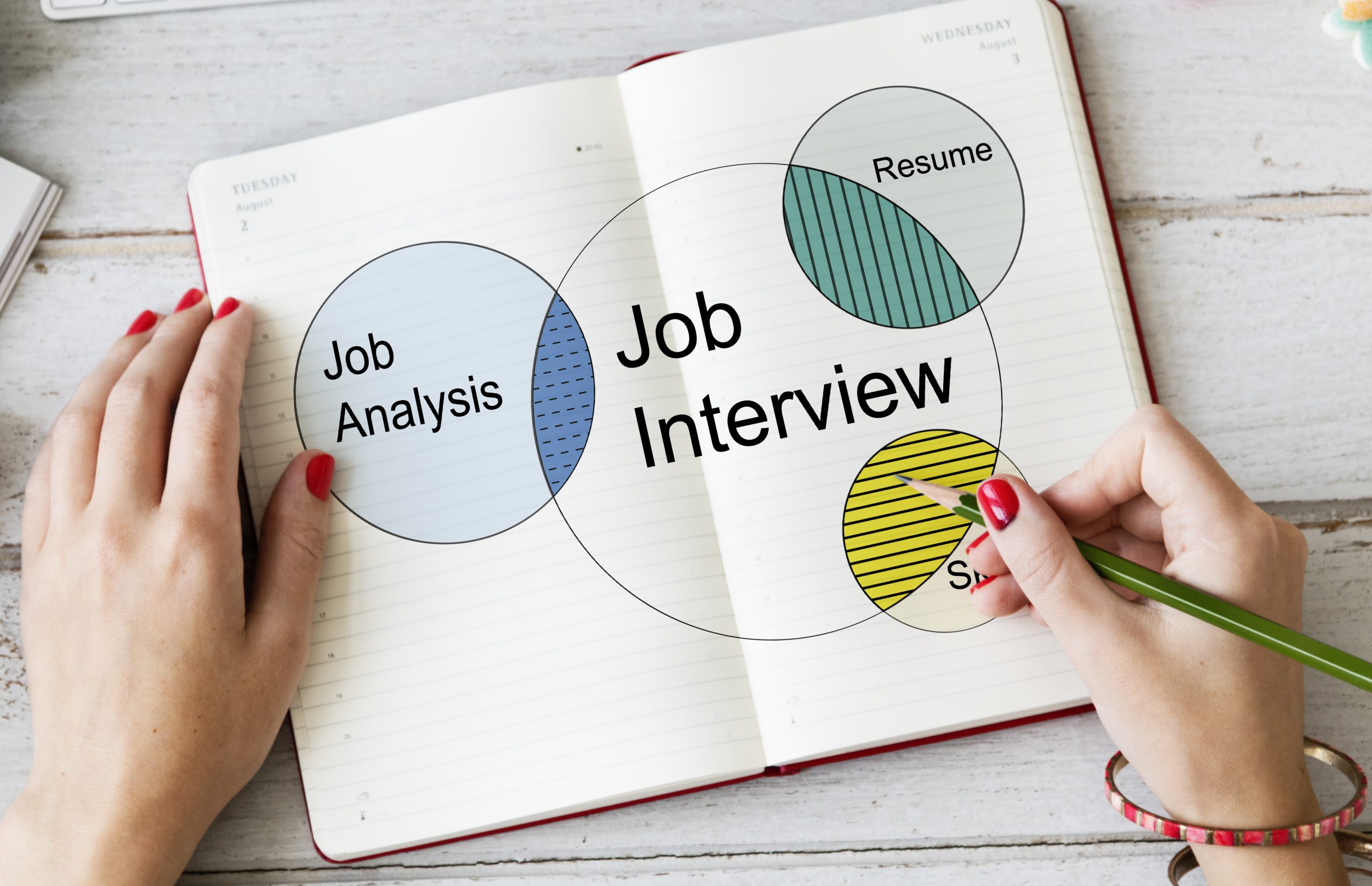Good article my colleague wrote – Craig Benstock
Seven Keys to Interview Preparation
You may have heard of the common saying ‘The Seven P’s’ – Meaning – “Prior Preparation and Planning Prevents P*** Poor Performance”.
Interview preparation is somewhat similar and you can adopt those same principals to use to your advantage.
Continue reading to learn these simple but effective principals when preparing to make a job change and ensure your performance is optimal.
#1 The Resume
A great resume is hard to come by and it requires a lot of thought and effort for many candidates. Despite the rise and strength of social media and online job applications the cover letter and resume combination is still the best for applying direct.
The question we hear most often from our candidates is “What should I put on my resume”, we hear this a lot with similar positions we deal with. It is always best to read the spec and listen to your recruiter to understand the most desirable skills so you can tailor accordingly.
Employers sometimes get high volume of resumes and often takes days to sort through them to identify the candidates they feel best suitable. All companies from recruiters to companies hiring direct get a longlist and narrow this down to a shortlist, so they can decide the top candidates to submit to management. Everything is based on the CV and matching the requirements needed to the CV. Hiring managers don’t often have a lot of time to review resumes so they look at the most constructed and attractive resume to their position.
The resume is basically a written summary of your education, work experience, past achievements and interests that you construct in a positive way to match a company/job. When putting together your resume it is important to keep it short, focused and concise and the most importantly, PAGE 1 is critical. Most Hiring Manager and HR will tend to make a decision on your just by looking at the first page, so don’t fall on the first hurdle.
Each part is of significant importance:
- Contact Information: Place your full name at the top of your resume, and include your address, telephone number, and e-mail.
- Career Objective: This is a statement that outlines your career goals. It should be very brief, a sentence or two, but it needs to relate to the company and job you’re applying for.
- Education: Any relevant education should be included here, such as college, university or any technical schools that you may have attended.
- Skills and Abilities: This section allows you to highlight those impressive skills and abilities that you obtained through education, past employment and current. But you need to consider the role you are applying for and emphases those abilities.
- Work Experience: Chronological order, including dates, name and location of the companies, as well as the responsibilities and duties you had in each position.
- Activities and Interests: The best type of candidate is one who appears well-rounded and has varied interests, including some diverse activities. This will signal to employers that you have gained some effective personal skills.
#2 Appropriate Attire and Appearance
In most cases and interview scenarios its more than likely a smart suit would be the best attire. That said, there is a case to consider to take into account the type of position, company and industry you are interviewing for. Assuming you are interviewing for something in the corporate environment then stick to smart attire. This shows the employer that you have made an effort & understand the importance of making a good first impression. You should also look and feel more professional yourself and in a better mindset to perform the interview.
#3 Interview Location
It is important to obtain the correct location of your interview ideally a day or two prior. If the interview location is local or you are very familiar with the area, then you should take into account travel time to ensure you are not late.
If you are not familiar with the area then it would be strongly advised you do your best to locate the destination prior to the day of your interview, or, give yourself ample time to arrive while having some contingency for getting lost/searching for those hard-to-find office locations.
Important:
- Do NOT be late. This will no doubt make you flustered, rushed and put you off your game
- You never get a second chance to make a good first impression
- Arrive at least 15 minutes’ prior
- Ensure you have the correct contact information to ask for when you arrive
#4 Name and Title of the Interviewer(s)
Ensure you obtain the interview name and their function is within the group and company. Depending on the interviews function can really alter the type of interview you have whether it is generic, technical, case study, behavioral etc. so its key to find out this information in advance of your interview.
Once you have this information you should ask the recruiter/job contact for as much information on that particular person – any information/advice/past experience they have had could help you identify their interview style, do’s and don’ts, things to expect & things you could prepare for. It is also highly advisable you try to do your own research on the interview, whether that’s checking them out on LinkedIn (or similar sites) to learn more about their background, past companies, progression and any mutual connections you may have – this could lead to interesting common ground conversations during the interview.
#5 The Company’s Hiring Process
Its important you try and understand the company’s interview process to help with your own timeline expectations and ensure this falls in line with your availability.
Each company have different procedures. Company A may do one phone interview then invite you in to meet 5 members of the team, last a couple of hours and then can make a decision to make an offer, or not. Company B may do individual meetings over a period of 4-6 weeks then make a decision. Either way its key you find out yourself.
You should also be asking what type of interviews you could expect at each step. Are they all conversational, case studies, practical, theory test and so on.
Lastly, its advisable that you find out who the final decision maker would be. Generally, it’s the last person you interview with as you have passed all interviews up to this point and therefore you should now be interviewing with a pretty senior figure within the firm/group. Same rules apply when researching their background and role within the firm.
#6 Company Background & Research
With the power of the internet, copious amounts of information is readily available to you with a click of a button. Its imperative you utilize this and research the company you are interviewing for.
You could be the strongest candidate technically, skills and experience however if you cannot describe what the company is and does when asked, no doubt you would have blown your chances for a second interview.
The interviewer will not expect you to be able to know every detail about the company dating back 10 years however they would expect you to be able to give them a high level overview of the firm, what they do and ultimately why YOU would like to work there.
You should think about:
- Company VIPs. Research the company founders, current leadership teams to understand more about the history of the firm.
- Company Structure. Are they privately or publicly held
- Company’s Current Market Share & Value. This should give you a good indication of how they firm are performing with past and present data
- The different departments and groups of the firm. This is important because you could be interviewing for a position that is in a group which has been under performing for a period of time and may not be the best place to join for career progression. in the same sense, you could be joining a group that has seen impressive performance improvements and growing exponentially which in turn should offer great upward mobility and opportunities.
#7 Need to know Questions
Although the main purpose for an interview is for the interviewer to identify if they feel you would be a good fit for their team by gathering information about you, your work ethic, skills, certifications, prospects, career goals and so on, it’s also extremely important you have prepared questions to ask them.
This has a two-fold effect. 1) You appear interested, prepared and professional to the interview 2) You actually learn very important things about the role, group, positions, hiring team, progression and career path which ultimately will help you decide whether or not you would like to work there, if offered the role.
We can categorize these into 4 sections:
- Company: These are all focused on the company in question, the market share, performance, culture, environment, growth.
- Position: These questions should help you define the entire role & scope, reporting line, general responsibilities, must haves.
- Opportunity: These will focus on your own personal growth and progression opportunities to ensure you have some form of upward mobility, pay and performance reviews, career path and so on.
- Industry & Topic: the industry and area is important. You should be trying to identify the current status of the particular industry and how it is shaping up in the current market. Most industries see peaks and troughs so its your job to gather as much info possible to help your decision.
Summary
Hopefully by now, you would have taken on board all the information you have read and are fully aware that preparation is key in being able to performance optimally in anything you do, especially interviewing for a new job.
Remember – You Only Get One Chance To Make A Good First Impression


